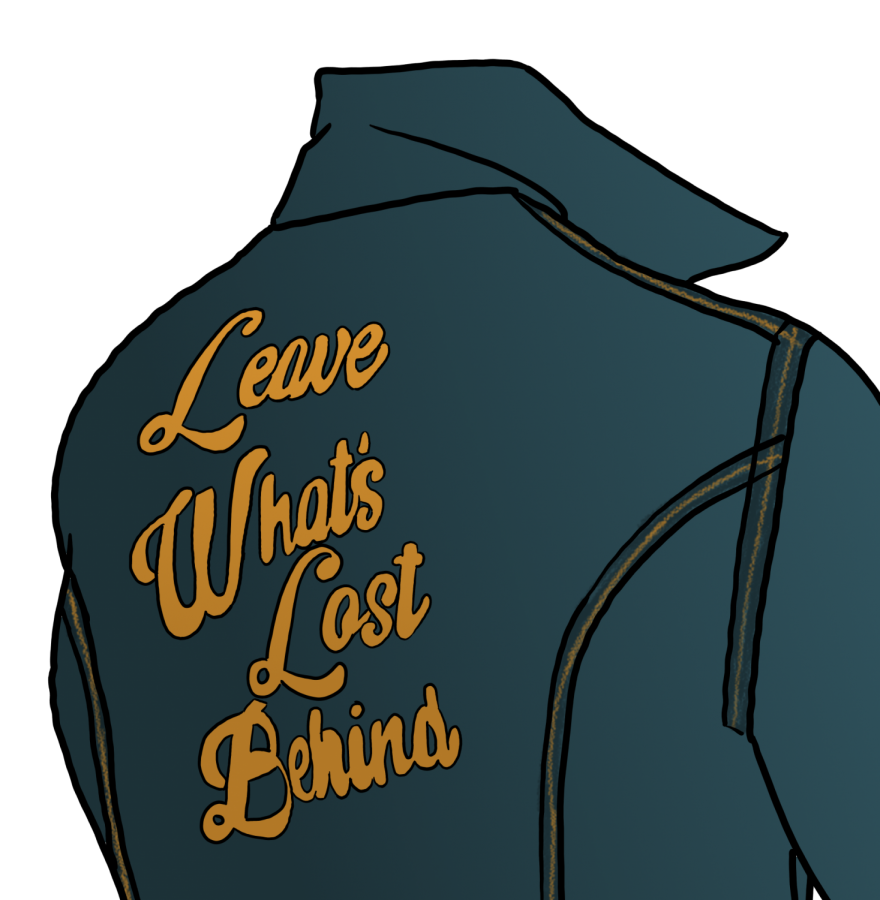Album review: Leave What’s Lost Behind
Certain bands tell a universal story through their music. Colony House is one of those bands; they successfully tell the stories of our desires to feel both known and loved. Hailing from Franklin, Tennessee, alt-rock Colony House is made up of Caleb (vocals, guitar), Will (vocals, drums) Chapman, Scott Mills (guitar) and Parke Cottrell (bass guitar, keys). Their latest release entitled “Leave What’s Lost Behind” showcases not only the members’ technical musical skills through the journeys within songs but also showcases their storytelling skills through the unifying thread of longing that weaves together the various facets of human experience.
The opening track, “Looking for Some Light,” gracefully opens with a crescendo that draws the listener in, peaking an interest in where this journey is going. This song, in particular, embodies the on-the-road ethos of the entire album, functioning as a sort of roadmap for the remaining twelve songs. The lyrics reveal the universal longing for light, whether that be the light of being known by others or the light that emanates from a hope we hold before ourselves. “Looking for Some Light” introduces the Augustinian restlessness of the human heart that is chronicled in this album.
Interspersed throughout the album are little snippets titled “Runaway,” presumably one narrative divided into three parts. They are equally spaced throughout the album, which could give the impression that there is little purpose or intention to their placement and content as if they were placed haphazardly throughout. However, each snippet marks the shift in the tone of the album, from one of fear and hopelessness to one where the sojourner finds their footing by looking home and ultimately to a sense of hope that comes when it’s all we have left. Without these mini-songs that chronicle the life of a character named Mr. Runaway and the way he learns of love’s place as both the sustainer and the end of the journey, “Leave What’s Lost Behind” would be a very different album. A large part of the storytelling aspect would be lost, but thankfully, it is not.
The bulk of the album — the songs situated between the opening and the conclusion — weaves a story of longing, weariness, hope and rest. The second full-length song, “Leave What’s Lost Behind,” drives forward without looking back even though it longs for the wreckage of what has been lost. “Original Material,” a track released as a single, closes out the first ten minutes of the album by singing of the wish to be recognized and seen. Next comes “El Capitan,” which I have to admit I am not a massive fan of simply because tempo-changes mid-song are not my favorite thing. Aside from that, the song is a wonderful picture of love, likening the ups and downs of love in all its forms to that of a mountain with rocky crags.
Next, “Why Even Try” confesses the road-weariness a lot of us often feel but are afraid to admit; it issues a call to keep our heads up as we keep trying and points the listener to the strength found in a community that limps along together. The listener is encouraged to remember that the road is, in fact, a road, because “we experience frustration and disappointment when we try to make the road a home rather than realizing it’s leading us home” (James K.A. Smith, On the Road with Saint Augustine).
The next group of songs — “Where I’m From,” “Take It Slow,” and “Julia”— remind us of the power that comes from looking back as we struggle to move forward and the importance of community. The penultimate song, “Trying,” is one of my favorites from the album. It is refreshingly honest about the race we often find ourselves in as we yearn to be known and to be loved through working hard enough. This song allows us to confess the exhaustion that comes from always trying, always putting up a front in the hopes of being good enough.
The last track, “The Hope Inside,” brings an end to the journey of the album, but not the journey of our hearts. In fact, the sounds of the song slowly fade out, almost inviting us to pick up a storytelling instrument and continue the journey. This song does not buckle under the pressure placed on it by the rest of the album; it rises to the occasion by reminding us that although the journey is hard, we are going to make it home.

My name is Ayden Smith and I am a junior studying English here at Trinity. I am from Friendswood, Texas, and grew up coming to San Antonio for little vacations....

I'm a senior Computer Science major and a Classical Studies minor from Newton, North Carolina with a passion for art. I also work at the Center for Experiential...











